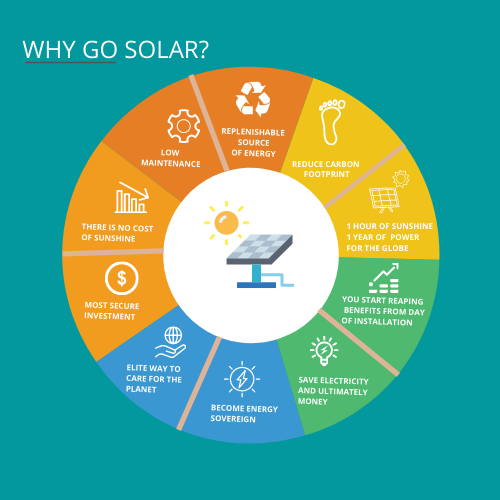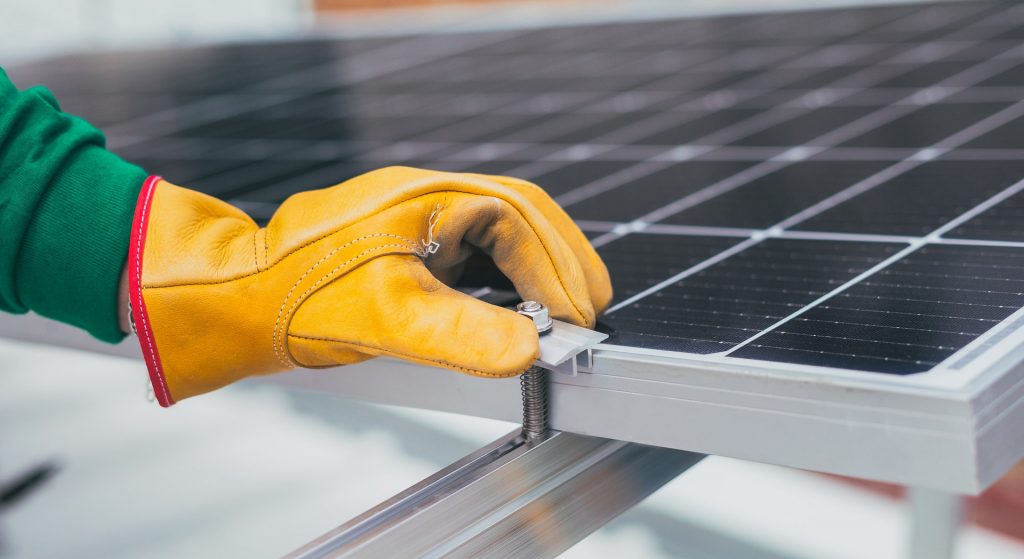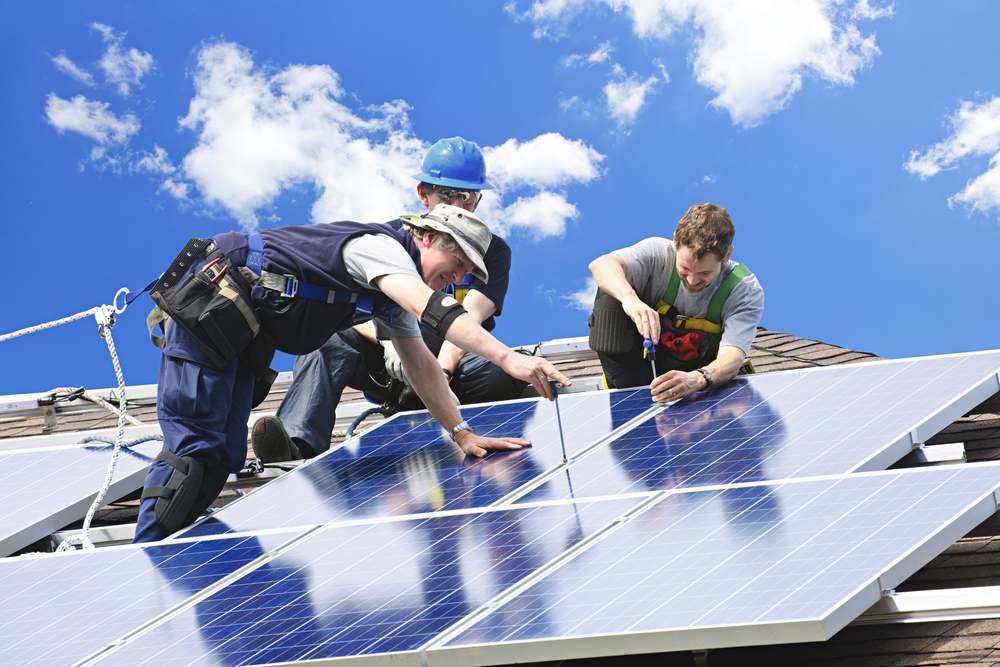The use of solar energy is becoming increasingly popular as the world searches for alternative sources of clean, renewable electricity.
Leasing solar panels presents an attractive option to make this form of energy more accessible. From cost savings to environmental benefits, there are many advantages associated with leasing solar panels that should be considered before making a decision.
On the other hand, potential drawbacks such as limited customization options must also be taken into account. By examining both sides of the equation, readers can make an educated assessment about whether or not leasing solar panels is right for them.
What Is Solar Panel Leasing?
Solar panel leasing is an increasingly popular form of renewable energy investment that allows households to access solar technology without having to pay the full upfront cost.
In most cases, a household will lease rooftop space from a third-party provider who then installs and maintains photovoltaic panels on their behalf.
This arrangement offers financial flexibility with lower monthly payments than if they were to purchase a system outright, while also allowing them to benefit from increased energy efficiency in their home.
Leasing can be advantageous for some homeowners as it eliminates the need for costly equipment purchases or maintenance activities; however, there are several cons to consider when deciding whether this option is right for you.
For example, many leases include long terms and high early termination fees which make it difficult to switch providers, and some companies may charge higher prices over time due to inflation or other factors.
Additionally, leasing does not provide the same long-term savings as owning a system outright since you do not own any of the components at the end of your contract period.
Advantages Of Leasing Solar Panels

Leasing solar panels can offer many advantages for those looking to transition away from more traditional sources of energy.
Cost effectiveness is one of the primary benefits associated with leasing, as it eliminates the need for a large upfront investment and allows homeowners to take advantage of long-term savings while still enjoying all the benefits that come along with having their own renewable energy source.
The process of leasing also makes it easier to keep up with ever-changing technology; most lease agreements include coverage for maintenance and repair costs, meaning you won’t have to worry about replacing or repairing your system in order to stay current.
Additionally, because leases are typically shorter than purchase contracts, they provide opportunities for people who may not be able to commit to a long-term agreement or aren’t sure if they will want solar power permanently in their home.
By leasing rather than buying outright, homeowners can enjoy the short-term advantages of renewable energy without making a permanent commitment.
Disadvantages Of Leasing Solar Panels
Leasing solar panels can come with a number of potential risks that are important to consider before entering into an agreement. One such risk is the possibility of hidden fees, as it’s not always clear what costs may be associated with leasing and how they will be incurred throughout the lifetime of the lease.
Additionally, when you lease your system, you don’t actually own it, so if there are any problems or repairs needed after installation, those responsibility lies with the owner – usually the company from which you leased it. This means that even if something goes wrong or stops working properly after installation, you could still end up paying for costly maintenance and repair bills without having any control over them.
As such, it’s vital to read all terms and conditions thoroughly in order to ensure that you understand exactly what is included and excluded from your contract.
When deciding whether leasing solar panels is right for you and your circumstances, it’s essential to weigh up both sides carefully before committing. There can certainly be advantages in some cases but knowing about potential risks ahead of time is key to making sure that whatever decision you make works best for your needs and budget in the long-term.
Cost Savings With Leasing Solar Panels
Despite the disadvantages of leasing solar panels, there are several potential cost savings that can be realized over time.
Leasing solar panels is often seen as a more cost-effective option than purchasing them outright, particularly for those with limited financial resources or who do not need to own the system long term. In addition, it may provide greater flexibility in terms of financing and long-term planning.
Leasing also allows people to take advantage of tax credits and other incentives that would otherwise be unavailable if they purchased the system outright.
Solar panel leases typically include warranties on parts and labor which can help reduce maintenance costs over time.
Moreover, many companies have begun offering ‘rent-to-own’ programs where customers pay a fixed monthly fee for their systems but don’t actually own them until the end of the contract period – providing an even more economical way to access solar energy without having to make a large upfront investment.
Environmental Benefits Of Solar Panel Leasing
The environmental benefits of solar panel leasing are undeniable.
Solar energy is a renewable resource and its use reduces the impact on the environment by reducing emissions, noise pollution, and air pollution.
Leasing also helps to reduce energy consumption as it allows households or businesses to access solar electricity without having to purchase expensive equipment upfront. This provides an additional incentive for people to switch from traditional sources of energy such as fossil fuels that cause more damage to the environment.
Leased solar panels can be used in combination with existing energy efficiency measures such as insulation or double glazing which help to further reduce energy usage and costs associated with heating or cooling buildings.
The cost savings achieved through these measures also contribute towards making leased solar panels a competitive option compared to other forms of renewable energy generation such as wind turbines and hydroelectricity.
These systems have minimal carbon footprint when compared to non-renewable sources of power like coal and gas, thus providing significant environmental benefits.
Customization Options With Solar Panel Leasing

Leasing solar panels has its advantages, including the availability of customization options for different applications. One advantage is that consumers can access varied options for their particular needs when it comes to installation processes and accessibility.
For instance, customers have the choice of either opting for a rooftop or ground-mounted system depending on whether they have space constraints or not. Moreover, in some cases where there are existing rooftops with limited area available, homeowners may opt for an adjustable mounting system which allows them to fit more solar panels into the same given space.
Furthermore, leasing also gives people control over how much money they want to spend up front during installation. Generally speaking, those who lease do not need to pay large sums of money as down payments since most companies offer payment plans that require minimal upfront fees.
Additionally, these plans often come with maintenance services included throughout the duration of the lease term so that customers don’t have to worry about repairs and replacements. As such, by allowing individuals to choose suitable payment plans based on their geographical location and budget requirements, leasing offers more flexibility than outright purchasing of solar systems.
Making The Decision To Lease Solar Panels
Making the decision to lease solar panels can be a difficult one for many homeowners. It is important to understand all aspects of solar financing, energy efficiency, and other financial considerations before making this commitment.
When evaluating whether or not to lease solar panels, it is essential that you research the different types of leasing options available. Solar leases vary in terms of length, upfront costs, and monthly payments. Before signing any contracts, make sure to read them carefully and ask questions if anything seems unclear.
You should also consider how long you plan on staying in your current home as well as the local climate when deciding on an option.
In addition to understanding the leasing details, you must also consider energy efficiency and savings potential. An experienced contractor will review factors such as solar panel orientation and angle, estimated sunlight hours per day, shading from trees or buildings, electricity use by appliances in your home, rebate availability through state-sponsored programs or utility companies, etc., all of which can affect the amount of energy produced by the system and its associated savings.

